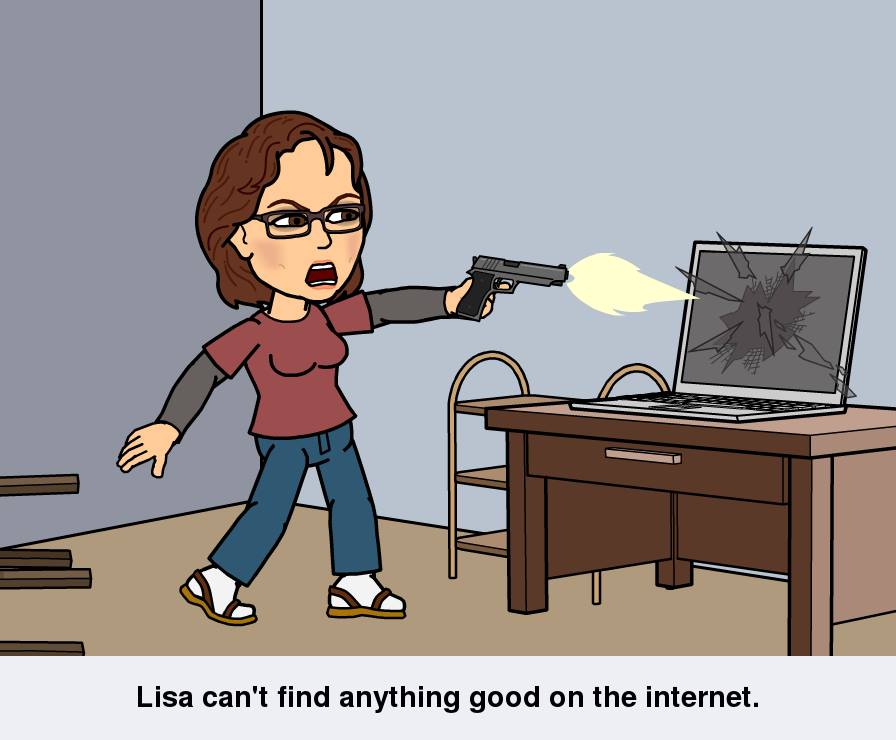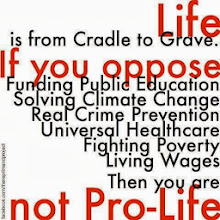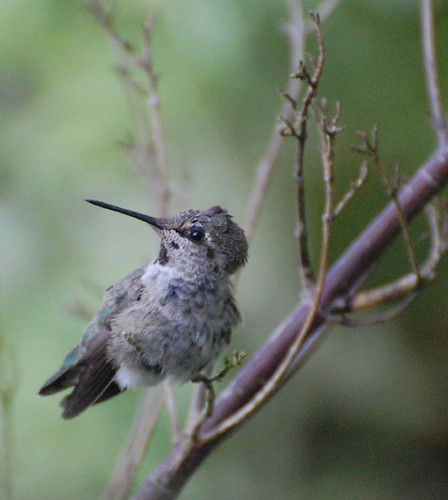I don’t know why, but when I see the word “prayer,” I get this picture of human beings handing the Almighty a “honey-do” list: Help us do this, let us have one of these, save my (or someone else’s) life. If we want something we know is beyond our capacity to secure for ourselves, we go ask God. And if we’re really desperate, we’ll bargain. If You do this for me, I’ll do this. Or I’ll never do that again. As if anything we have the power to give or withhold would hold a lot of weight with the Creator of the Universe.
Yes, I know. Not all prayers are requests. Perhaps it was my Catholic upbringing that sullied my personal concept of prayer. From the time we were old enough to string two words together, we were taught prayers. There was that somewhat maudlin old stand-by, “Now I Lay Me Down to Sleep” (…if I should die before I wake? Quite a concept for a three-year-old…) And there was grace—a “thank you,” but a very specific one. Thanks for the food. Thanks for not letting us starve. And, truly, it had little meaning for a suburban baby-boomer child. Clothing, a warm bed, food, comfort—those things simply…existed. They were ours, without having to beg, work, or worry. It’s difficult to feel true gratitude for something you have never done without. So grace was more like an incantation than any expression of real emotion; as were most of the prayers in the Catholic liturgy.
As a twenty-something born-again Christian, my definition of prayer expanded. Evangelicals try really hard to make it appear that their goal is a “right relationship with God,” rather than thinking of God as either a last resort or a celestial supermarket. Yes…you still go to God with your wish list. But you also pony up a hefty portion of praise and thanksgiving—“spontaneous” expressions of appreciation for the majesty and bounty of the Almighty But…let’s face it. We weren’t shooting those “Alleluias” up into the sky with no thought of return. Anyone who thinks there is no ulterior motive in it is not being entirely honest. Because, you know, we tend to go heavy on the thanks and praise when we want something from God. If we stay on the good side of the Almighty, the Almighty will be on OUR side when times get tough. Or maybe WON’T visit plague or pestilence or judgment upon us. You need only to look at the post-9/11 power surge of the American Christian Right to see this concept in action on a (frightening) national scale.
Then came the days after life had finally dealt me some tougher cards, and I became a card-carrying agnostic. I just couldn’t reconcile the evangelical father-god, brother-Jesus with the sad and cruel events of my life. Or of any human being’s life. And the Catholic God—the one who tended toward the stick rather than the carrot—didn’t resonate with me, either. These interpretations of the Author of the Universe were entirely too human. They ascribed to the Almighty all the motivations and emotions of the human race. Even the negative ones. Especially the negative ones, maybe.
Jealousy, hatred, anger, greed, irrationality… “God” displays these in godlike proportions. And “prayer” becomes a way to ward off the bad stuff—whether through direct request (Please don’t kill me!), thanksgiving (Thank you for my wonderful life…please don’t kill me!) or praise (Ah….You are great and powerful…please don’t kill me!) To me, the average human being’s indulgence in “prayer” amounts to little more than disingenuous, self-serving attempts to dodge adversity. My friends of pastoral bent will no doubt take issue with this generalization. I’m aware that “prayer” can and does mean something entirely different to an enlightened subset of humanity. But I maintain that, to your average Joe Blow on the street, prayer has less to do with conversation with God, and more to do with covering one’s ass. If it is indulged in at all.
So when, in my spiritual journey, I came across an exhortation to “know all the prayers of everything around us—birds, fish, rocks, trees, streams,” my spirit could not bear witness to it. Even this comfortingly pagan-sounding concept seemed like yet another instance of human beings ascribing human characteristics to things that are not human. If we don’t “know” it, if we don’t understand it, we humanize it; as we have humanized the Almighty.
Our uniqueness as a creation—our possession of language as a means of communication, our “free will” to think and reason (which is not necessarily a blessing…)—have fitted us to the idea of “prayer.” Why should other creations, lacking these traits, “pray?” Why shouldn’t the ability, the need to pray be as unique to human beings as the ability to breathe water is to fish?
I would argue that a fish or a tree or a rock has not severed its intimate connection to the Universe, so it has no need to seek conversation with the Almighty. It is in constant communication with the Spirit. Of all creation assigned to this Earth, we seem to be the only ones who have forgotten that we ourselves are a part of the Creator—that we are in the Spirit and the Spirit is in us—and so feel the need to cry out for/to It. How very bleak!
Do we need to learn the prayers of the birds or the streams or the mountains? No…but we need to seek their counsel. We need them to show us how to recall and rest once again in our oneness with the Creator. We need them to show us how not to pray.
Monday, April 16, 2012
Friday, April 13, 2012
Feelin' Flannel
The change in the overall context of my life is mirrored by the contents of my closet.
The nutsiness of the final five months at the café coupled with the subsequent physical inactivity of not working loaded me up with extra baggage that could not be packed into clothes that I could wear a mere eighteen months ago. Once upon a time, my post-Weight Watchers body was too tiny to fit even a ladies’ size S. I was forced to shop in the juniors’ departments; which, while it was quite an ego boost, wasn’t great for acquiring age-appropriate stylish clothing. (I have since come to the conclusion that there is, at my price point, no such thing; but that is a different rant.) Unfortunately, those days are gone; can’t say I’m in love with the size tags inside the clothes I wear these days, but at least they are styled for a post-adolescent female physique.
But there is more than just the size difference in play, here. The clothes I wore every day to work, even if they still fit, were basically trashed. There wasn’t a pair of pants, t-shirt, sweater or jacket that I had worn to the restaurant that wasn’t smeared with grease stains or spattered with pink bleach-out spots. I didn’t feel bad about sending that stuff off to the Goodwill. Let some other domestic engineer figure out how to make them presentable again.
Yet, once I had sent away all the clothes that either didn’t fit or looked like they had been through a war, what I had left was still somehow…not okay. Business attire that I currently do not need and for which I do not foresee a need before it goes hopelessly out of style. “Occasional” wear that I no longer find the occasion to wear. My retirement from the daily grind, and the more opulent diversions that counter-balanced it, has required a general dumbing-down of my wardrobe. I may even still like some of the prettier things I own, but they don’t do much more than take up space that could be occupied by a sturdy pair of gardening jeans or another old, soft sweater that I might actually wear.
So I’ve rediscovered the delights of “gently used” when it comes to re-filling my empty hangers. It’s an unfortunate fact that I am a clothes-horse. I’ve always been so, and I’m not likely to change this late in life. At least when one’s clothes are acquired at Goodwill, St. Vincent de Paul, Value Village and the like, one can come home with two or three bags of good stuff for $60, instead of one brand new pair of on-sale designer jeans(which you know you won’t wear until you hem them, which you don’t get around to doing until two or three months later.)
I’ve noticed, too, that the clothes that catch my eye at any given season of my life tell as much about what’s going on inside my head as they do about the physical conditions governing my wardrobe choices. These days, I’m drawn like a magnet to fabrics and forms that almost whisper, “Snuggle. Relax. Kick back. Enjoy!” Knits and fleece, long shirts and stretchy, skinny jeans.
And flannel. Big and plaid and soft and homey, flannel doesn’t ask me to go out and conquer the world. It begs me to rest, to nest, to kick around in my own little house and my own little yard. Exactly what I’m all about, right now.
Someday, my eye might again stray to the business-y tweeds, or the satins and crisp linens. But right now, just wrap me in a big flannel shirt, set me in a chair by the door of the greenhouse, and leave me be.
The nutsiness of the final five months at the café coupled with the subsequent physical inactivity of not working loaded me up with extra baggage that could not be packed into clothes that I could wear a mere eighteen months ago. Once upon a time, my post-Weight Watchers body was too tiny to fit even a ladies’ size S. I was forced to shop in the juniors’ departments; which, while it was quite an ego boost, wasn’t great for acquiring age-appropriate stylish clothing. (I have since come to the conclusion that there is, at my price point, no such thing; but that is a different rant.) Unfortunately, those days are gone; can’t say I’m in love with the size tags inside the clothes I wear these days, but at least they are styled for a post-adolescent female physique.
But there is more than just the size difference in play, here. The clothes I wore every day to work, even if they still fit, were basically trashed. There wasn’t a pair of pants, t-shirt, sweater or jacket that I had worn to the restaurant that wasn’t smeared with grease stains or spattered with pink bleach-out spots. I didn’t feel bad about sending that stuff off to the Goodwill. Let some other domestic engineer figure out how to make them presentable again.
Yet, once I had sent away all the clothes that either didn’t fit or looked like they had been through a war, what I had left was still somehow…not okay. Business attire that I currently do not need and for which I do not foresee a need before it goes hopelessly out of style. “Occasional” wear that I no longer find the occasion to wear. My retirement from the daily grind, and the more opulent diversions that counter-balanced it, has required a general dumbing-down of my wardrobe. I may even still like some of the prettier things I own, but they don’t do much more than take up space that could be occupied by a sturdy pair of gardening jeans or another old, soft sweater that I might actually wear.
So I’ve rediscovered the delights of “gently used” when it comes to re-filling my empty hangers. It’s an unfortunate fact that I am a clothes-horse. I’ve always been so, and I’m not likely to change this late in life. At least when one’s clothes are acquired at Goodwill, St. Vincent de Paul, Value Village and the like, one can come home with two or three bags of good stuff for $60, instead of one brand new pair of on-sale designer jeans(which you know you won’t wear until you hem them, which you don’t get around to doing until two or three months later.)
I’ve noticed, too, that the clothes that catch my eye at any given season of my life tell as much about what’s going on inside my head as they do about the physical conditions governing my wardrobe choices. These days, I’m drawn like a magnet to fabrics and forms that almost whisper, “Snuggle. Relax. Kick back. Enjoy!” Knits and fleece, long shirts and stretchy, skinny jeans.
And flannel. Big and plaid and soft and homey, flannel doesn’t ask me to go out and conquer the world. It begs me to rest, to nest, to kick around in my own little house and my own little yard. Exactly what I’m all about, right now.
Someday, my eye might again stray to the business-y tweeds, or the satins and crisp linens. But right now, just wrap me in a big flannel shirt, set me in a chair by the door of the greenhouse, and leave me be.
Tuesday, April 10, 2012
The Pelicanization Continues...
Spent several hours over the past five days tromping through forests and fields around Eugene looking for birds. I toted my gigantic camera around with me, which always seems to be the kiss of death. As a general rule, one will NOT see anything worth taking pictures of if one has one's camera at the ready.
We went out to the area around Fern Ridge Reservoir...I was doggedly pursuing a decent image of my Power Bird, Heron. Didn't see a one.
But the Universe continues to try to communicate with me through a different bird spirit, one with a specific message which I am obviously having difficulty assimilating. Because these were the birds I did encounter:
Sometimes the Universe can be SO one-note...
We went out to the area around Fern Ridge Reservoir...I was doggedly pursuing a decent image of my Power Bird, Heron. Didn't see a one.
But the Universe continues to try to communicate with me through a different bird spirit, one with a specific message which I am obviously having difficulty assimilating. Because these were the birds I did encounter:
Pelicans. In a place I had no idea they would be in evidence. (These are white pelicans--birds of inland lakes and marshes as well as ocean beaches; apparently their range is expanding northward from California. The birds I normally see on the Oregon coast are brown pelicans.)Sometimes the Universe can be SO one-note...
Wednesday, April 4, 2012
Writing Inside Out
I rose late this morning, since one of my hormonally
triggered bouts of consciousness at a less slackerly hour had informed me that
“bright and early” was not going to be a concept congruent to the weather. Tousled blankets and a lumpy pillow won out
over greeting the gray and drippy dawn.
Robbed of the outdoor adventures on which I had hoped to focus this day, I climbed out of bed and conducted a dejected surveillance of my immediate indoor surroundings. I sat down on the floor in front of the fireplace to admire my newly-waxed hearth stones (the project at last looks as good as it’s going to, though not nearly as wonderful as I had envisioned.) Sighing, I thought, “Well, this is done. What am I going to do with myself today?” and I glanced disinterestedly around the room. My eyes lit on the tattered stack of old spiral notebooks and sketch pads relegated to the scary bottom shelf of my bookcase. Hand-written journals. Some going back thirty or forty years.
On a whim, I grabbed the top one—a dark blue Mead composition book that I instantly recognized as the notebook I had purchased out of lonely desperation back in Illinois in 1995. A place to record my anguish during the final days of my sister’s life, and the 365 days after her death.
Though I do revisit my old writings from time to time, I have not had the (questionable) luxury of doing so for at least five years. My struggles with the café kept me well stocked with more immediate traumas and dramas. I didn’t have to go searching through pages of ancient history to find something to be depressed about. It is an unfortunate fact that most of my old journals—and this one, in particular—were litanies of my heartaches-du-jour. I wrote when things were awful. It was therapy.
Two things immediately struck me as I leafed through the pages of my old blue journal. First, I came upon some details of an event about which I had completely forgotten, and it frightened me a little. “Oh, yeah,” I thought. “I kind of remember that… How could I forget?” At my age, the first thing that comes into your mind in a situation like this is, “Oh, no! I’m losing it!” I have always had an incredible memory, and I am not at all used to brushing up against an aspect of my past about which I have totally forgotten. I had to remind myself that this was a minor detail of a very traumatic time seventeen years ago. It boggles my mind to think about the piles of years that comprise my past. Seventeen years since my sister’s death; thirteen since my dad’s. Married thirty-five years. Forty-year-old journals moldering in my bookcase. How can I possibly be that old?
The second thing that demanded my notice was how absolutely abysmal the writing is. I thought, “Good lord, I wrote crap this bad and insisted upon identifying myself as a writer?” Not a word of it has any value beyond the purely therapeutic. It was good for that; it did the trick. But if I thought I was leaving any kind of legacy behind in the form of these pages upon pages of whining, nit-picking and neurotically repetitive self-analysis, I was out of my mind.
Honestly, if I had children, I would burn this stuff before I let it get into their hands. As it is, whoever comes into possession of it upon my demise will not be inspired to great admiration of either my character or my prose, to say the least. But since my family is singularly uninterested in my chicken scratching, I’m sure the notebooks will end up in the landfill when I’m gone, if any of my relations should still be around by then. So I’ll keep them safe from the torch, for the time being…though I’m not entirely sure why.
It was impossible not to notice how much my writing has changed since I began writing here, on this ethereal page. Looking back on those stacks of real paper pages—letters written inside my head, intended for no other audience than myself—I’m shocked that I was ever able to progress beyond that to real writing. Writing for an audience (however small.) Writing as a connection to other people rather than a refuge from them. Telling the stories, rather than secretly inscribing the stories I could never tell.
It’s hard to believe I can go back three or five or eight years, here. But I do, fairly often in fact. I read, and I don’t cringe and think, “Oh, my god…did I actually write that?” More often than not, I sit up a little straighter, puff out my chest just a bit and think, “Oh, my god…I actually wrote that!” For the most part, “Coming to Terms…” is a body of work of which I am inordinately proud. It is a legacy I would be proud to pass down. Which is sad, really, because I have no one to whom to pass it.
And it will be relegated to some ethereal junkyard when I’m no longer around. Or simply erased.
I’m not sure how to think about that…
Robbed of the outdoor adventures on which I had hoped to focus this day, I climbed out of bed and conducted a dejected surveillance of my immediate indoor surroundings. I sat down on the floor in front of the fireplace to admire my newly-waxed hearth stones (the project at last looks as good as it’s going to, though not nearly as wonderful as I had envisioned.) Sighing, I thought, “Well, this is done. What am I going to do with myself today?” and I glanced disinterestedly around the room. My eyes lit on the tattered stack of old spiral notebooks and sketch pads relegated to the scary bottom shelf of my bookcase. Hand-written journals. Some going back thirty or forty years.
On a whim, I grabbed the top one—a dark blue Mead composition book that I instantly recognized as the notebook I had purchased out of lonely desperation back in Illinois in 1995. A place to record my anguish during the final days of my sister’s life, and the 365 days after her death.
Though I do revisit my old writings from time to time, I have not had the (questionable) luxury of doing so for at least five years. My struggles with the café kept me well stocked with more immediate traumas and dramas. I didn’t have to go searching through pages of ancient history to find something to be depressed about. It is an unfortunate fact that most of my old journals—and this one, in particular—were litanies of my heartaches-du-jour. I wrote when things were awful. It was therapy.
Two things immediately struck me as I leafed through the pages of my old blue journal. First, I came upon some details of an event about which I had completely forgotten, and it frightened me a little. “Oh, yeah,” I thought. “I kind of remember that… How could I forget?” At my age, the first thing that comes into your mind in a situation like this is, “Oh, no! I’m losing it!” I have always had an incredible memory, and I am not at all used to brushing up against an aspect of my past about which I have totally forgotten. I had to remind myself that this was a minor detail of a very traumatic time seventeen years ago. It boggles my mind to think about the piles of years that comprise my past. Seventeen years since my sister’s death; thirteen since my dad’s. Married thirty-five years. Forty-year-old journals moldering in my bookcase. How can I possibly be that old?
The second thing that demanded my notice was how absolutely abysmal the writing is. I thought, “Good lord, I wrote crap this bad and insisted upon identifying myself as a writer?” Not a word of it has any value beyond the purely therapeutic. It was good for that; it did the trick. But if I thought I was leaving any kind of legacy behind in the form of these pages upon pages of whining, nit-picking and neurotically repetitive self-analysis, I was out of my mind.
Honestly, if I had children, I would burn this stuff before I let it get into their hands. As it is, whoever comes into possession of it upon my demise will not be inspired to great admiration of either my character or my prose, to say the least. But since my family is singularly uninterested in my chicken scratching, I’m sure the notebooks will end up in the landfill when I’m gone, if any of my relations should still be around by then. So I’ll keep them safe from the torch, for the time being…though I’m not entirely sure why.
It was impossible not to notice how much my writing has changed since I began writing here, on this ethereal page. Looking back on those stacks of real paper pages—letters written inside my head, intended for no other audience than myself—I’m shocked that I was ever able to progress beyond that to real writing. Writing for an audience (however small.) Writing as a connection to other people rather than a refuge from them. Telling the stories, rather than secretly inscribing the stories I could never tell.
It’s hard to believe I can go back three or five or eight years, here. But I do, fairly often in fact. I read, and I don’t cringe and think, “Oh, my god…did I actually write that?” More often than not, I sit up a little straighter, puff out my chest just a bit and think, “Oh, my god…I actually wrote that!” For the most part, “Coming to Terms…” is a body of work of which I am inordinately proud. It is a legacy I would be proud to pass down. Which is sad, really, because I have no one to whom to pass it.
And it will be relegated to some ethereal junkyard when I’m no longer around. Or simply erased.
I’m not sure how to think about that…
Subscribe to:
Posts (Atom)
















